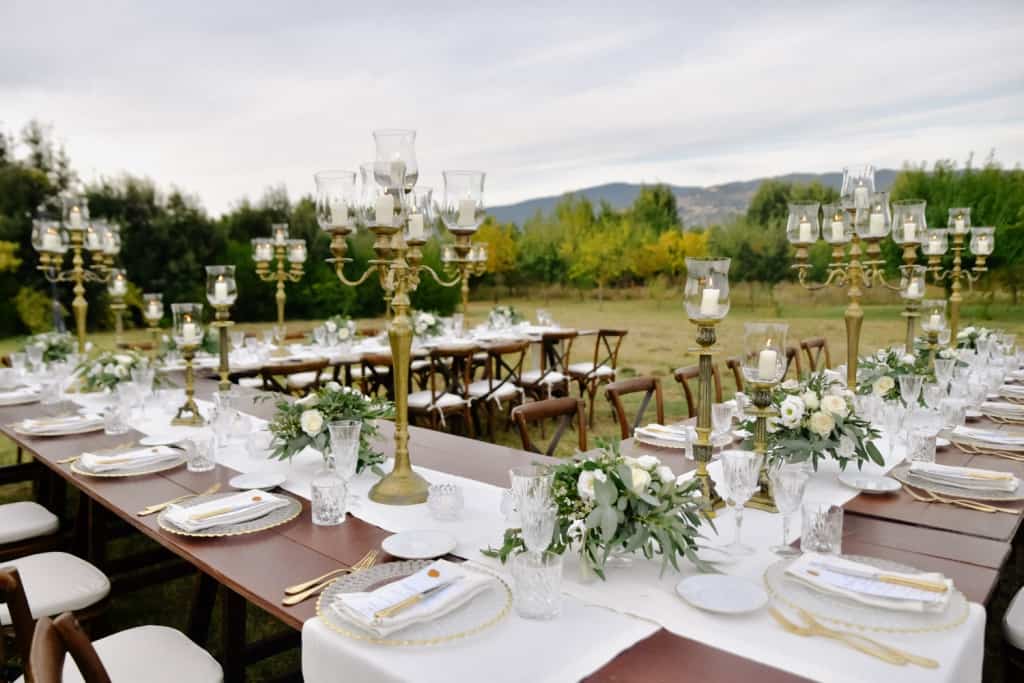Are you a budding event planner who is excited and passionate about creating memorable experiences? Planning an event from scratch can be daunting, especially if you're starting in the industry.
But don't be afraid! In this blog post, we will explore different types of event management that are perfect for newbie event planners. Whether you are hosting a small gathering or a large-scale event, we have your back.
So let's learn together and explore the world of event planning!
Types of Event Management
Tips for Better Events
1. Corporate Events

Corporate events are gatherings planned and executed by businesses and corporations for a range of objectives. These types of events serve as important platforms for companies to engage with their stakeholders, showcase their products or services, enhance professional development, and strengthen internal relationships.
Here are some common types of corporate events:
Conferences
In various types of gatherings, conferences are large-scale gatherings where professionals from a specific industry come together to exchange knowledge, insights, and ideas and expand their networking opportunities.
They help attendees stay updated on industry trends, foster collaborations, and gain valuable expertise.
Seminars
Seminars are more focused and intimate compared to conferences. They provide a platform for industry experts to share in-depth knowledge and expertise on specific topics. Seminars often have a narrower scope and are designed to educate and inform participants about specific subjects or areas of interest.
Product Launches
When a company introduces a new product or service to the market, a product launch event is organized to create excitement and generate buzz.
These events aim to showcase the features and benefits of the new offering to potential customers, partners, and the media.
Team-Building Activities
Companies understand the importance of fostering strong relationships among their employees. Team-building activities are organized to enhance collaboration, communication, and camaraderie within teams. These activities can range from outdoor adventures, or even virtual experiences designed to promote teamwork and boost morale.
Annual General Meetings (AGMs)
AGMs are formal gatherings held by companies to communicate important information to their shareholders. During AGMs, companies share financial reports, discuss business strategies, and provide updates on corporate performance. Shareholders can ask questions, vote on important matters, and gain insights into the company's direction.
2. Social Events

The most frequent and well-known events for us nowadays are certainly social events. Social events are special gatherings that revolve around personal celebrations and meaningful get-togethers. They allow individuals to share their joyous occasions with friends, family, and loved ones.
Here are some common types of these events:
Weddings
Weddings are magical celebrations of love and union between two individuals. They are filled with emotions, traditions, and elaborate preparations, including venue selection, decorations, food, music, and dancing.
Birthdays
Birthdays mark another trip around the sun and are an occasion to celebrate a person's life. These events often involve cakes, gifts, games, and decorations tailored to the birthday person's interests and preferences.
Anniversaries
Anniversaries are milestones that honour the enduring commitment and love between couples. Anniversaries can be celebrated privately or with family and friends through intimate gatherings or grand parties.
Baby Showers
Baby showers are joyful occasions to welcome an upcoming addition to the family. Baby showers often include fun games, heartfelt wishes, and adorable decorations related to the baby's gender or nursery theme.
Reunions - Type of event
Reunions bring together individuals who share a common bond, such as classmates, colleagues, or family members who haven't seen each other for an extended period.
3. Non-Profit and Fundraising Events -Types of Event Management

Non-profit organizations often host events to raise funds and create awareness for their causes. Some types of these events are:
Charity Galas
Charity galas are elegant and formal events that bring together donors, sponsors, and supporters of a non-profit organization. These gatherings often feature dinner, entertainment, and keynote speeches to create a memorable and impactful experience. Funds are raised through ticket sales, auctions, and donations during the gala.
Auctions - Type of event
Auctions are events where valuable items or experiences are put up for bidding. Participants bid against each other to win the items, and the proceeds go towards the non-profit organization's cause.
Walkathons
Walkathons are community-based events that promote physical activity while raising funds for a cause. Participants gather to walk a designated distance, often with sponsors who pledge a certain amount per mile or overall.
Community Outreach Programs
Community outreach programs involve non-profit organizations directly engaging with the local community to raise awareness and provide support. These events can include educational workshops, health screenings, food drives, or volunteering opportunities.
4. Trade Shows and Expos
Trade shows and expos are events that serve as bustling marketplaces, bringing together businesses and industries to showcase their products, services, and innovations. These events provide a unique platform for companies to connect with potential customers, network with industry peers, and gain valuable market exposure.
In these events, companies set up booths or stalls where they display their products, demonstrate their services, and engage with attendees. It's an opportunity to capture the attention of potential customers and create brand awareness, and highlight the benefits of their offerings.

5. Cultural and Festive Events
Cultural and festive events are vibrant and joyous celebrations that honor cultural traditions, holidays, and festivals. These events serve as a means to showcase and preserve rich cultural heritage while bringing communities together. Depending on the type of event, organizers should choose the type of event planning services that are appropriate for the celebration.
Music Festivals
Music festivals are lively events that feature performances by various artists, bands, and musicians. These gatherings often span multiple days and encompass different genres of music.
Parades
Parades are colorful processions that take place on special occasions, such as holidays or cultural celebrations. Participants march through the streets, displaying costumes, and floats, and performing cultural dances or music.
Art Exhibitions
Art exhibitions showcase visual arts, including paintings, sculptures, installations, and photographs. These events allow artists to present their work to the public, fostering an appreciation for artistic expression and cultural diversity. Art exhibitions often provide a platform for emerging artists to gain exposure and for the community to engage with different forms of art.
6. Educational Events
Educational events are purposeful gatherings designed to offer attendees valuable knowledge, enhance their skills, and provide professional development opportunities. These events serve as platforms for learning, networking, and gaining insights from industry experts.
Workshops
Workshops are interactive sessions where participants engage in hands-on learning experiences. They focus on practical skills development in a specific field or topic. Workshops often involve group activities, discussions, and exercises that enable attendees to apply what they learn in real time.
Webinars
Webinars are online seminars conducted through web conferencing platforms. They allow participants to join remotely from anywhere in the world. Webinars feature presentations, discussions, and interactive elements, enabling attendees to learn from subject matter experts without the need for physical presence.
Your Go-to Tool for Audience Engagement at Events
When organizing events, AhaSlides is a versatile platform that can help you create interactive and captivating experiences for your audience. Incorporating AhaSlides into your event can enhance audience engagement in various ways.

You can conduct live polls to gather real-time feedback and opinions from attendees. Incorporating interactive Q&A sessions allows participants to submit questions and receive immediate responses.
AhaSlides also offers interactive games and quizzes, adding an element of fun and excitement to keep attendees engaged. The word cloud feature enables participants to contribute ideas and solutions, fostering collaboration and creativity.
Using these interactive features depending on the types of event planning you choose, AhaSlides will help your events be more engaging, memorable, and impactful.
Key Takeaways
As types of event management continue to evolve, professionals in this industry will undoubtedly explore new event types, adopt emerging technologies, and find innovative ways to deliver exceptional experiences.
Whether it's a corporate conference, a cultural festival, or a charity fundraiser, event management is vital in bringing people together, fostering connections, and creating moments that leave a lasting impact.
Frequently Asked Questions
What are the 5 types of events?
The five common types of event management are: Corporate Events, Social Events, Non-Profit and Fundraising Events, Educational Events and Cultural and Festive Events.
How many types of event management are there?
As you can see in this article, there are six types of event management we are currently listing: #1 - Corporate events, #2 - Social events, #3 - Non-profit and fundraising events, #4 - Exhibitions and trade shows, #5 - Cultural events and festivals and #6 - Educational events.
What are the four elements of event management?
The four types of event management can be defined as follows: (1) Planning: This involves the initial stages of event organisation, including defining goals, setting objectives, creating a budget, developing timelines, and coordinating logistics. (2) Organizing: This phase includes venue selection, vendor management, event promotion, participant registration, and coordination of event resources. (3) Execution: This is the stage where the event is implemented, and all the planned elements come together. It involves managing event operations, coordinating schedules, overseeing activities, and ensuring smooth execution and (4) Evaluation: After the event concludes, the evaluation phase focuses on assessing the event's success, gathering feedback, analyzing outcomes, and identifying areas for improvement. This step helps in refining future event management strategies.








